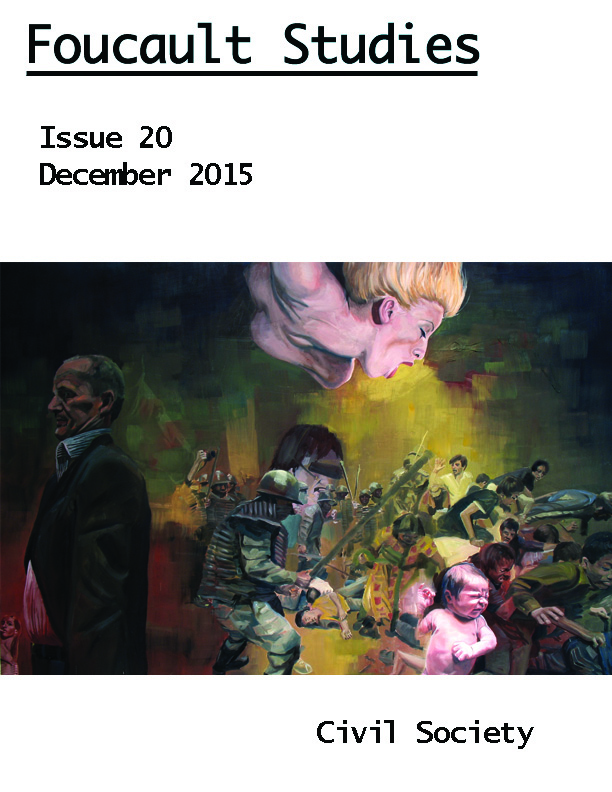Liberalism, Governmentality and Counter-Conduct; An Introduction to Foucauldian Analytics of Liberal Civil Society Notions
DOI :
https://doi.org/10.22439/fs.v0i0.4925Mots-clés :
civil society, counter-conduct, government(ality), liberalism, neoliberalism, subjectRésumé
This article gives an analysis of Foucault’s studies of civil society and the various liberalist critiques of government. It follows from Foucault’s genealogical approach that “civil society” does not in itself possess any form of transcendental existence; its historical reality must be seen as the result of the productive nature of the power-knowledge-matrices. Foucault emphasizes that modern governmentality—and more specifically the procedures he names “the conduct of conduct”—is not exercised through coercive power and domination, but is dependent on the freedom and activeness of individuals and groups of society. Civil society is thus analyzed as fundamentally ambivalent: on the one hand civil society is a field where different kinds of technologies of governance meet the lives and wills of groups and individuals, but on the other hand it is a potential field of what Foucault called ‘counter-conduct’ – for both collective action and individual political action.
Téléchargements
Publié-e
Comment citer
Numéro
Rubrique
Licence
Authors retain copyright to their work, but assign the right of the first publication to Foucault Studies. The work is subject to a CC BY-NC-ND 4.0 license, but despite these restrictions, authors can take for granted that Foucault Studies will permit articles published in Foucault Studies to be translated or reprinted in another format such as a book providing a full reference is made to Foucault Studies as the original place of publication.



